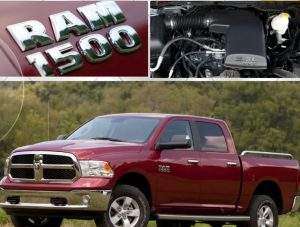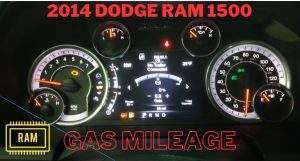Using the correct type of fuel for your car is crucial for ensuring optimal performance and longevity.
Failure to use the right type of gas can result in engine damage, decreased fuel efficiency, and even total breakdown. This is why it’s essential to understand what type of gas your car requires.
In this article, we will focus on the popular midsize sedan, the Ford Fusion. We’ll provide a brief overview of the vehicle and answer the question, “what type of gas does a Ford Fusion take?” to help you keep your car running smoothly.
What Type of Gas Does a Ford Fusion Take?
The type of gas your Ford Fusion takes depends on the engine under the hood. Here are the different types of engines you’ll find in a Ford Fusion and the type of gas they require:
- 2.5-liter four-cylinder engine: This engine requires regular unleaded gasoline with an octane rating of 87.
- 1.5-liter EcoBoost engine: This engine also requires regular unleaded gasoline with an octane rating of 87.
- 2.0-liter EcoBoost engine: This engine can run on regular unleaded gasoline with an octane rating of 87, but Ford recommends using premium unleaded gasoline with an octane rating of 91 or higher for optimal performance.
- 2.0-liter Atkinson-Cycle Hybrid engine: This engine uses regular unleaded gasoline with an octane rating of 87.
- 2.5-liter Atkinson-Cycle Hybrid engine: This engine requires regular unleaded gasoline with an octane rating of 87.
As you can see, most Ford Fusion models require regular unleaded gasoline with an octane rating of 87.
However, if you have a Fusion with a 2.0-liter EcoBoost engine, you may want to consider using premium unleaded gasoline for optimal performance.
Tips for Fueling Up Your Ford Fusion
Now that you know what type of gas your Ford Fusion takes, here are some tips for fueling up your vehicle:
- Always use the recommended type of gas for your engine. Using the wrong type of fuel can lead to decreased performance and potential engine damage.
- Look for gas stations that offer top-tier gasoline. Top-tier gasoline contains a higher level of detergents, which can help keep your engine running smoothly.
- Don’t top off your tank. Overfilling your tank can cause gasoline to overflow and potentially damage your vehicle’s emissions control system.
- Check your owner’s manual for recommended fuel additives. Some vehicles may benefit from using fuel additives to improve performance or fuel economy.
- Don’t wait until your gas tank is empty to fill up. Running on a near-empty tank can put additional strain on your fuel pump and potentially damage your engine.
- By following these tips, you can ensure that you’re fueling up your Ford Fusion correctly and keeping your vehicle running smoothly for years to come.
Gasoline Alternatives for Ford Fusion
As concerns about the environment continue to grow, alternative fuel options are becoming increasingly popular. If you own a Ford Fusion, you may be wondering what other fuel options are available. Here is an overview of some gasoline alternatives for your Ford Fusion.
Ethanol Fuel (E85) and its Suitability for the Fusion
Ethanol fuel, also known as E85, is a blend of 85% ethanol and 15% gasoline. Many Fords, including the Fusion, are Flex-Fuel vehicles, meaning they can run on E85. While E85 can be less expensive than regular gasoline, it does have a lower energy content and may result in lower fuel economy.
Additionally, E85 may not be available at all gas stations, so it is important to check availability before deciding to use it.
Compressed Natural Gas (CNG) and its Suitability for the Fusion
Compressed Natural Gas (CNG) is another alternative fuel option for the Ford Fusion. CNG is a cleaner burning fuel than gasoline and can result in lower emissions.
However, converting a Fusion to run on CNG can be expensive, and not all gas stations offer CNG. Additionally, CNG tanks take up more space than gasoline tanks, which may impact cargo space in your Fusion.
Gasoline Additives for Ford Fusion: Enhancing Performance and Fuel Efficiency
Are you looking for ways to improve the performance and fuel efficiency of your Ford Fusion? Adding gasoline additives can be a simple yet effective solution.
Gasoline additives are chemicals that are added to fuel to enhance its properties, such as cleaning the engine, reducing emissions, and improving fuel economy.
Explanation of Gasoline Additives
Gasoline additives are designed to enhance the properties of gasoline by altering its chemical composition. There are various types of gasoline additives, including detergents, oxygenates, octane boosters, and corrosion inhibitors.
Each additive serves a specific purpose, such as removing deposits from the engine, increasing the oxygen content in the fuel, or preventing rust and corrosion in the fuel system.
Which Additives are Recommended for the Ford Fusion
When it comes to selecting the right gasoline additives for your Ford Fusion, there are a few factors to consider.
First, it’s important to choose additives that are compatible with your car’s engine and fuel system.
Second, look for additives that can address specific issues you may be experiencing, such as engine deposits or poor fuel economy.
Some recommended gasoline additives for the Ford Fusion include:
- Chevron Techron Concentrate Plus Fuel System Cleaner: This additive can clean and protect the fuel system, improve performance, and reduce emissions.
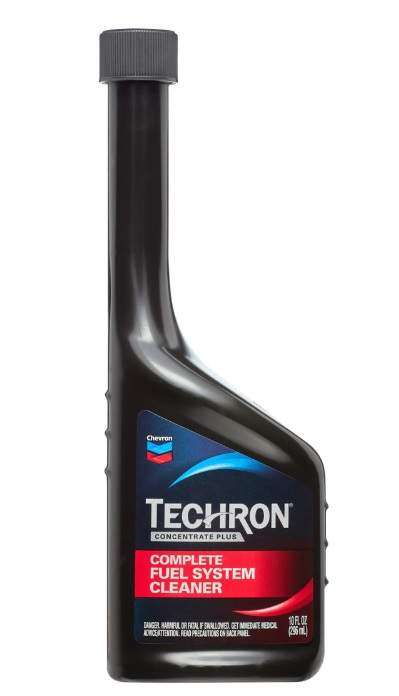
- Lucas Oil Fuel Treatment: This additive contains detergents and lubricants that can improve fuel economy, reduce emissions, and protect the engine from wear and tear.
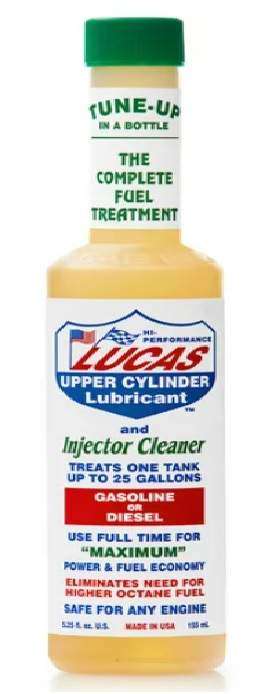
- Sea Foam Motor Treatment: This additive can clean the fuel system, lubricate the engine, and reduce harmful emissions.
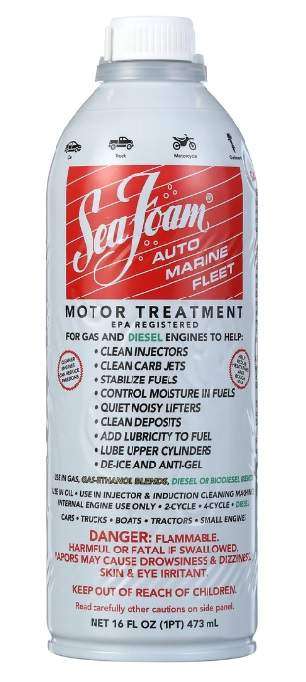
Benefits of Using Gasoline Additives
Using gasoline additives in your Ford Fusion can provide several benefits. These include:
- Improved performance: Gasoline additives can improve fuel efficiency, acceleration, and power output.
- Longer engine life: By cleaning the fuel system and reducing harmful emissions, gasoline additives can help prolong the life of your car’s engine.
- Reduced maintenance costs: Regular use of gasoline additives can help prevent engine deposits and other issues that can lead to costly repairs.
Adding the right gasoline additives to your Ford Fusion can help improve its performance, prolong its life, and save you money in the long run.
Just make sure to choose additives that are compatible with your car’s engine and fuel system, and follow the manufacturer’s instructions for use.
Performance Upgrades for the Ford Fusion
There are several performance upgrades available for the Ford Fusion, ranging from simple modifications to major engine upgrades. These upgrades can enhance the car’s fuel efficiency, acceleration, and overall performance. Some popular performance upgrades for the Ford Fusion include:
Upgrades that can Enhance Fuel Efficiency
- Cold Air Intake: This upgrade can increase the amount of cold air that enters the engine, which can improve fuel efficiency and horsepower.
- High-Flow Exhaust System: A high-flow exhaust system can improve the car’s fuel efficiency by reducing back pressure in the exhaust system, allowing for smoother airflow.
- Engine Tuning: Tuning the engine’s computer can optimize the fuel and air mixture, resulting in better fuel economy and performance.
Upgrades that can Enhance Engine Performance
- Turbocharger/Supercharger: These upgrades can boost the engine’s power output by forcing more air into the engine, resulting in more horsepower and torque.
- Performance Air Filter: Replacing the factory air filter with a high-performance air filter can improve airflow to the engine, resulting in improved performance and fuel economy.
- Performance Ignition System: Upgrading the ignition system can improve the car’s ignition timing, resulting in better performance and fuel efficiency.
There are several performance upgrades available for the Ford Fusion that can enhance fuel efficiency, acceleration, and overall performance.
However, it’s important to note that some upgrades may require modifications to the car’s engine and may void the manufacturer’s warranty.
Always consult with a trusted mechanic or performance specialist before making any modifications to your car.
Ford Fusion Fuel Economy: Real-World Performance
The Ford Fusion has an EPA-estimated fuel economy rating of 23 city/34 highway mpg.
However, in real-world driving conditions, the car’s fuel economy can vary depending on several factors, such as driving style, road conditions, and weather.
According to consumer reports, the Ford Fusion’s real-world fuel economy ranges from 22 to 38 mpg.
Factors that Affect Fuel Economy
Several factors can affect the Ford Fusion’s real-world fuel economy, including:
- Driving Style: Aggressive driving, rapid acceleration, and hard braking can significantly reduce fuel economy.
- Route and Terrain: Driving on hilly or mountainous roads can reduce fuel economy, while highway driving can improve it.
- Vehicle Condition: Proper maintenance, tire pressure, and a clean air filter can help improve fuel economy.
How to Improve Fuel Economy?
There are several steps you can take to improve the Ford Fusion’s real-world fuel economy, such as:
- Drive Responsibly: Avoid aggressive driving, rapid acceleration, and hard braking.
- Plan Your Route: Plan your route to avoid traffic and hilly roads.
- Keep Your Vehicle Maintained: Regular maintenance, proper tire pressure, and a clean air filter can help improve fuel economy.
- Avoid Excess Weight: Remove any unnecessary items from your car to reduce its weight and improve fuel economy.
Ford Fusion Fuel Tank Capacity
The fuel tank capacity for different Ford Fusion models can vary slightly. Here’s a table that outlines the fuel tank capacity for each model:
| Model | Fuel Tank Capacity |
|---|---|
| S, SE | 16.5 gallons |
| SEL, Titanium | 18 gallons |
| Hybrid, Energi SE | 14 gallons |
| Hybrid, Energi SEL | 14 gallons |
How to Calculate Fuel Range Based on Fuel Tank Capacity
To calculate fuel range based on fuel tank capacity, you can use the following formula:
Fuel Range = Fuel Tank Capacity x Miles per Gallon
For example, if you have a Ford Fusion SE with a fuel tank capacity of 16.5 gallons and an average miles per gallon (MPG) of 30, your fuel range would be:
Fuel Range = 16.5 x 30 = 495 miles
How to Use Fuel Tank Capacity to Plan Long Trips
Knowing the fuel tank capacity of your Ford Fusion can help you plan long trips more effectively. Here are some tips:
- Calculate your fuel range based on your car’s fuel tank capacity and average miles per gallon.
- Use a map or GPS system to plan your route and estimate the distance between gas stations.
- Fill up your tank before leaving and plan to refuel at regular intervals.
- Consider taking a portable gas canister if you’re traveling in remote areas with limited gas stations.
Conclusion
In conclusion, the Ford Fusion requires unleaded gasoline with an octane rating of 87 or higher. Using the recommended fuel type can help maintain the car’s performance and fuel efficiency, prevent damage to the engine, and reduce emissions.
By following the tips outlined in this article, you can keep your Ford Fusion running smoothly and efficiently for years to come.


